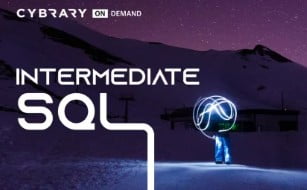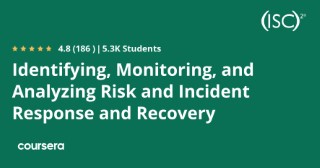Intermediate SQL
Accompanied at every step with hands-on practice queries, this course teaches you everything you need to know to analyze data using your own SQL code today!
Course Description
SQL is the most popular language for turning raw data stored in a database into actionable insights. Using a database of films made around the world, this course covers:
✓ How to filter and compare data
✓ How to use aggregate functions to summarize data
✓ How to sort and group your data
✓ How to present your data cleanly using tools such as rounding and aliasing
Accompanied at every step with hands-on practice queries, this course teaches you everything you need to know to analyze data using your own SQL code today!
What You’ll Learn
Selecting Data
In this first chapter, you’ll learn how to query a films database and select the data needed to answer questions about the movies and actors. You’ll also understand how SQL code is executed and formatted.
Aggregate Functions
SQL allows you to zoom in and out to better understand an entire dataset, its subsets, and its individual records. You’ll learn to summarize data using aggregate functions and perform basic arithmetic calculations inside queries to gain insights into what makes a successful film.
Filtering Records
Learn about how you can filter numerical and textual data with SQL. Filtering is an important use for this language. You’ll learn how to use new keywords and operators to help you narrow down your query to get results that meet your desired criteria and gain a better understanding of NULL values and how to handle them.
Sorting and Grouping
This final chapter teaches you how to sort and group data. These skills will take your analyses to a new level by helping you uncover critical business insights and identify trends and performance. You’ll get hands-on experience to determine which films performed the best and how movie durations and budgets changed over time.
Intermediate SQL
Ready to dive into SQL queries, aggregations, events, and database schemas? In our Intermediate SQL course, you’ll learn about these concepts; how they’re used to implement solutions and transactions that preserve data integrity; and how to utilize tools that speed up and protect development.
Course Description
Upon completion of this course, you will understand moderately complex database structures and concepts such as data queries, aggregation, complex joins, virtual tables, schema design, development techniques, and tooling.
This course expects you to already be familiar with development environment setup, basic queries, inner join, left join, right join, cartesian products, basic schema design, views, functions, and table expressions. If you need to learn or brush up on these concepts, we recommend enrolling in the Introduction to SQL course here at Cybrary.
By the end of this intermediate course, you should be able to:
In this Intermediate SQL training course, you will expand your SQL knowledge as you learn more about the standard programming language.Become more confident in your ability to understand and write SQL queries.
SQL skills are often divided into three categories – beginner, intermediate, and advanced SQL. This training course is designed to teach the mid-level skills of SQL. Some of the skills you can expect to learn at this level include:
In this Intermediate SQL course, students will further their understanding of structured query language and increase their knowledge and skillset of this universal coding language.Maximize your ability to write effective SQL code. You will have the opportunity to master the following:
SQL is a query language that is widely used, so it’s something that all IT professionals (beginners and experienced) should know. Good candidates for learning SQL include anyone who is looking to build upon basic SQL skills, employees who are looking for continuing education to add value to their organizations, and business managers or owners who want to fully harness business data science.
Before enrolling, you need to have a basic understanding of SQL and database systems. Although it’s not a prerequisite, you should have completed an introductory SQL course or have an understanding of SQL basics.
If you have an understanding of SQL fundamentals and are looking to add to your SQL knowledge, our Intermediate SQL class is a great place to start. Knowing more than the basics of SQL will add valuable skills to your repertoire, making you a more well-rounded IT professional and more appealing to hiring managers and recruiters.
Cybrary’s Intermediate SQL online training course is a convenient and comprehensive way to continue your SQL learning. Registering for this course is easy. Simply click the Enroll button to get started.
Writing complex SQL queries to execute on a database
Designing and writing SQL queries to group, filter, and summarize complex data subsets to retrieve specific information
Cybrary’s Intermediate SQL online training course is a convenient and comprehensive way to continue your SQL learning. Registering for this course is easy. Simply click the Enroll button to get started.
Module 1: Course Overview
Module 2: Quick Review
Module 3: Environment Setup
Module 4: Intermediate Database Development I
Module 5: Intermediate Database Development II
Module 6: Intermediate SQL Programming I
Module 7: Intermediate SQL Programming II
Module 8: SQL Optimizations
Module 9: Review and Closing
User Reviews
There are no reviews yet.
Be the first to review “Intermediate SQL”
You must be logged in to post a review.









There are no reviews yet.